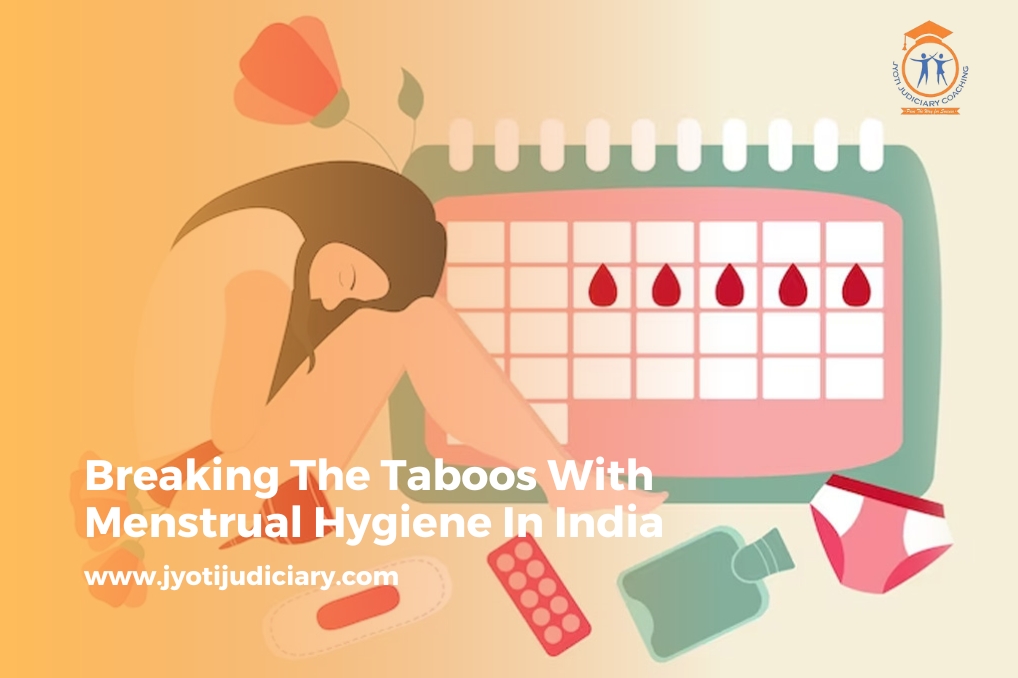
Menstruation has been linked to an array of a centuries-old taboo in a country as historically diverse and culturally rich as India. Menstrual hygiene remains a significantly overlooked issue, especially in rural regions, despite improvements in many domains. Nonetheless, an increasing effort is currently taking place nationwide to improve methods of menstrual hygiene and demolish such taboos.
Menstrual Hygiene in India
- An essential component of tribal health is menstrual hygiene. Menstruation is considered a socially and culturally taboo topic in India.
- Young girls who lack understanding and social support experience worry and fear, which leaves them unprepared for menstruation and encourages risky menstrual habits.
Menstrual Cup India
- The use of menstrual cup in India is a reusable item for personal hygiene. The flexible, funnel-shaped cup is placed into the vagina to gather period blood and discharge.
- It can be constructed of rubber or silicon. Tampons and pads have an environmentally harmful substitute in these cups.
- A best quality menstrual cup in india can contain blood for up to 12 hours after it is introduced, relieving the need to change tampons and pads frequently.
- For almost all users, purchasing menstruation cups once can be an investment that lasts the length of their monthly lives without causing rash, money problems, or garbage accumulation.
- They can work, cycle, and have leak-proof, clean periods without worrying about disposal or restocking due to their mobility.
Menstrual Hygiene Awareness in India: Key Initiatives
The key initiatives taken for awareness of menstrual health in india are:
- The Ministry of Women and Child Development developed the SABLA initiative, which aims to raise public knowledge of and provide services for health, nutrition, cleanliness, and sexual and reproductive health.
- The Ministry of Rural Development’s National Rural Livelihood Mission seeks to assist small manufacturers and self-help organizations in producing sanitary pads at a reasonable price.
- The Swachh Vidyalaya initiative, part of the Swachh Bharat Mission, seeks to equip public schools with sanitary facilities.
- The Ministry of Health and Family Welfare launched the Menstrual Hygiene Scheme, or Shuchi Scheme, with the goal of raising awareness about menstruation and providing girls in rural regions with inexpensive, safe sanitary napkin disposal.
- The goal of the Kishori Shakti Yojana, another ministry women and child development initiative, is to enhance the development, health, and nutrition of teenage girls.
- The Ministry of Education’s Rashtriya Madhyamik Shiksha program gives sanitation facilities in schools a top priority in an effort to boost student retention.
Menstrual Hygiene Problems in India
In India, teenage females have a high prevalence of menstruation-related problems. Menstrual irregularities vary in kind among populations, indicating sociocultural and geographic differences.
- More Droppers from the School: Teenagers in school face a serious issue in India since there are insufficient or non-existent feminine hygiene products and few safe, sanitary facilities. Because there are insufficient menstruation hygiene goods and services available, many girls end up dropping out of school.
- Contributors of Morbidity: Poor menstrual hygiene and a lack of self-care are major contributors to morbidity and other issues in the 10- to 19-year-old age group.
- Prone to Urinary Tract Infections: Urinary tract infections (UTI), vaginal scabies, unusual abdominal pain, missed school, and pregnancy troubles are a few of the problems.
- No Attendance in Schools: It is believed that cultural taboos and poor menstrual hygiene practices prevent them from attending school.
- Psychological Challenges: Menstrual irregularities and disorders have a significant impact on teenagers’ everyday lives and the lives of their families through a variety of psychosocial challenges, including anxiety. They are often linked to mental, social, physical, psychological, and reproductive issues.
Menstrual Hygiene Day India: Its Significance
On May 28, 2014, Menstrual Hygiene Day was first marked with marches, displays, seminars, speeches, and other events.
- This day emphasizes the significance of appropriate menstrual hygiene practices, such as utilizing clean and safe menstrual products, preserving personal hygiene, and effectively managing period discomfort.
- Menstrual hygiene is crucial for the well-being and dignity of those who menstruate.
- The day promotes better access to menstruation products because many people in low-income areas lack access to reasonably priced and hygienic products.
- Learning about our bodies, menstrual periods, and reproductive health is another important aspect of the day.
The Right to health of women in rural regions needs to be prioritized, and they should be given access to resources that are essential for teenage girls’ development. It’s time to dispel the stigmas and misconceptions around menstruation so that it is no longer viewed as “filthy.” Girls going through their menstrual week shouldn’t be made to feel like outsiders.
Menstrual Hygiene in India FAQs
How can I improve my menstrual hygiene in India?
NGOs’ work on menstruation health management (MHM) includes addressing the taboo around menstruation, normalizing periods to make spaces comfortable for girls, educating mothers about menstrual health, and developing the skills of community health workers to address menstrual health issues.
What is the main objective of menstrual hygiene?
Maintaining good menstrual hygiene and health can help you avoid infections, lessen odours, and feel more comfortable during your period. Prior to using a menstruation product and both before and after using the restroom, wash your hands.
What are the limitations of menstrual hygiene?
Inadequate menstrual hygiene can cause rashes or itching in the perineal area, foul smells, and occasionally serious side effects like toxic shock syndrome and pelvic inflammatory disease. Thus, this study’s goal was to evaluate women in the reproductive age group’s awareness and usage of menstrual hygiene.
Who can promote menstrual hygiene?
You can get help and support from women’s self-help groups (SHGs) in promoting menstruation hygiene and sanitary napkin use in the community. SHGs can produce sanitary napkins locally with a straightforward method.
What can poor menstrual hygiene lead to?
The poor menstrual hygiene can present significant health hazards, such as urinary tract infections and reproductive infections, which can lead to infertility and difficult deliveries in the future.
How do you promote sanitary pads?
Organize gatherings for women’s groups. Assist teenage females by giving them sanitary napkins. Make sure the community receives sanitary napkins from the Sub-Centre on a regular basis.
Is menstrual hygiene a human rights issue?
Women’s and girls’ access to safe methods of managing menstrual hygiene and the availability of medications to address problems or pain associated with menstruation are further barriers to employment. They might be compelled to forgo working hours and pay, or they might be discouraged from accepting specific positions.
Is menstrual hygiene empowerment?
If menstrual health and hygiene (MHH) are properly addressed from the start, they offer a surprisingly large potential to boost female empowerment at a critical juncture in a girl’s life. You must do this task accurately.
What is menstrual dignity?
Menstrual dignity for students refers to the right to safe, respectable self-care for all students who are menstruating, irrespective of their gender, age, ability, or financial situation. This program provides a counterbalance to the prevalent narratives that suggest menstruation is a cause for shame and disgrace.
What is the menstrual dignity act?
The Menstruation Dignity Act gives school districts and ESDs money from the State School Fund so they can construct dispensers and give every student who requires them menstruation products.
What is India menstrual policy?
A national menstrual hygiene policy has been developed, according to the government, which aims to eliminate the stigma associated with menstruation, guarantee access to period products and restrooms, empower women and girls, advance health and sustainability, and honour international commitments pertaining to gender equality and women’s welfare. The policy was unveiled in November 2023.
With the goal of giving students the best coaching available for law entrance exams including the CLAT, AILET, and various other numerous state judiciary exams, Jyoti Judiciary Coaching, India’s Finest educational Platform, was established. Come enrol now with Jyoti Judiciary!
For any latest news, legal topics, judiciary exams notifications, patterns, etc watch Jyoti Judiciary’s YouTube channel for legal videos for any updates at https://youtube.com/@jyotijudiciarycoaching4852?si=2cwubh9d2A9urwJf










